Meet our EASL Social Media Ambassadors 2022
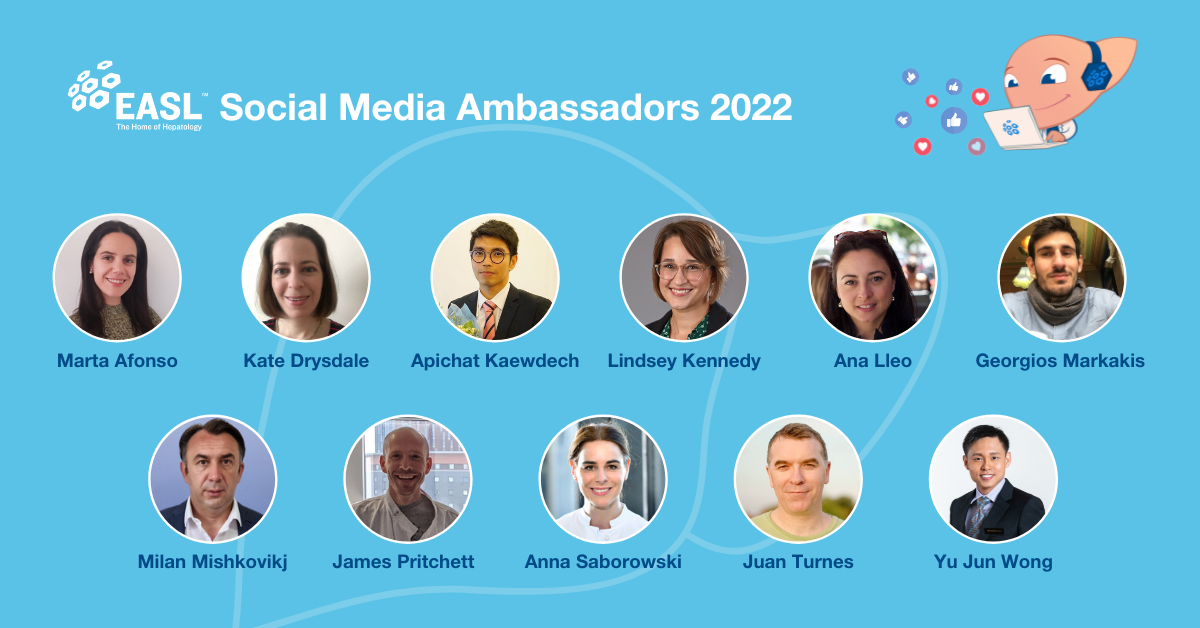
EASL is pleased to introduce the 2022 EASL Social Media Ambassadors! Discover the line-up here below and follow them.
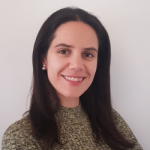
Marta Afonso
Read her bio
Afonso’s PhD work provided the first major insights in depicting the role of necroptosis, an immunogenic cell death pathway, in the pathogenesis of several liver diseases and the therapeutic potential resulting from its inhibition. During her PhD, Afonso has spent 3 months in Yuan’s lab at Harvard Medical School, MA, USA, which is the renowned laboratory that discovered necroptosis. Afonso was a Postdoctoral fellow of the POINT4PAC project, being dedicated to building a platform for discovery and early development of innovative therapeutic approaches for colon cancer prevention and treatment. Currently, Afonso is employed by LIVERBTT project to find emerging biomarkers, targets and therapies for non-alcoholic fatty liver disease (NAFLD). Currently, she is focused on studying the RIPK3-dependent immune-metabolic network that controls cancer stem cell biology and contributes to liver cancer development. Overall, she has published 1 book chapter and 20 papers in major international journals with an accumulated factor of ~143, which appeared in Gut, Journal of Hepatology and Cell Death and Differentiation. Afonso is also a member of the teaching staff of 2 curricular units of Master/PhD in Biopharmaceutical Sciences, Faculty of Pharmacy, ULisboa, being the co-coordinator of the Cell Signaling curricular unit. She also supervised several undergraduate students, 1 master student (2017/2018), and currently co-supervises 2 PhD students. Besides being a team member of 12 funded research projects, she was awarded with a Research grant APEF/MSD 2017, iMed.ULisboa-Young Investigators’ Projects for Collaborative Cross-disciplinary Studies 2019 and APEF/Bayer 2020. She was also awarded the EASL Mentorship Award 2018 with Peter R. Galle, Germany. Finally, she was selected to integrate the EASL Young Investigator task force.

Kate Drysdale
Read her bio
Kate is a clinical research fellow at Barts Health in North East London and is studying for her PhD at Queen Mary University of London. Her research interests include the impact of health policy and strategy on outcomes. Her PhD focuses on the treatment of chronic hepatitis C in England, using real-world data to evaluate services that contribute to disease elimination.
Kate graduated from University of Wales College of Medicine in 2005. She has worked clinically in Wales, New Zealand and London. From 2009 to 2011 she was a Clinical Advisor to the NHS Medical Director. Kate has been on Twitter since 2012 and enjoys connecting and learning through social media.

Apichat Kaewdech
Read his bio
Apichat Kaewdech, MD, is a medical instructor at the Gastroenterology and Hepatology Unit, Faculty of Medicine, Prince of Songkla University, Thailand. He is currently a member of the Thai Association for the Study of the Liver (THASL)’s steering committee, serving as an academic committee. During his residency training, he honored a research award from The Royal College Physicians of Thailand. He received an opportunity to present an oral abstract at the Asian Pacific Digestive Week (APDW) 2019. He received Professor Mindie H. Nguyen Award for Outstanding Clinical Research by Early Career Investigators, AASLD Foundation 2021.
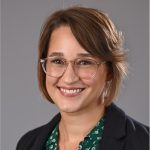
Lindsey Kennedy
Read her bio
Dr Lindsey Kennedy is an Assistant Research Professor of Medicine at the Indiana University School of Medicine and the Richard L. Roudebush VA Medical Center in Indianapolis, IN.
Her research focuses on the regulation of cholangiocyte proliferation/damage during various biliary diseases. Using various in vivo and in vitro techniques, her projects focus on biliary damage, inflammation and hepatic fibrosis progression during cholestatic injury.
Dr Kennedy has extensive experience with animal handling, cell culture, ELISA, qPCR, RNA isolation, protein isolation, western blotting, cholangiocyte isolation, immunohistochemistry and immunofluorescence.
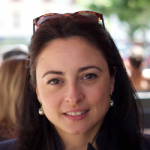
Ana Lleo
Read her bio
I obtained my degree in Medicine from the University of Milan, Italy, in 2000, completed my clinical training and received the Board Certification in Internal Medicine and Hepatology in 2006. In the same year I started my PhD at the University of California-Davis (Davis, CA, USA) in the division of Clinical Immunology and Rheumatology, under the supervision of Prof. M. Eric Gershwin. During my PhD I focused on the pathogenesis of PBC and the biliary specificity, a major unanswered question in PBC. After a productive fellowship, I went back to Milan in 2010 and joined the Hepatobiliary Immunopathology Lab at the Humanitas Clinical Research Center, while working in the clinic as Consultant Hepatologist.
In June 2017 I assumed the responsibility of the Hepatobiliary Immunopathology Laboratory in Humanitas and in January 2022 I was appointed Professor of Internal Medicine and Head of the Residency Program in Internal Medicine in Humanitas University. I currently work as Consultant Hepatologist and lead the Autoimmune Liver Diseases Clinic. I am also PI of a laboratory focused on projects of translational nature in liver tumors and, more broadly, in biliary liver diseases. Our studies dealt mainly with clinical and etiopathogenetic aspects of biliary disorders, with particular attention for cholangiocyte biology and liver innate immune response. Our efforts are aimed at translating knowledge from bench to bedside; our final goal is to identify prognostic predictors and molecular targets, and to facilitate their implementation into the clinical management of patients. I have co-authored 150 publications in peer-reviewed journals with an H-index (Scopus) of 45.

Georgios Markakis
Read his bio
Markakis George is a resident of Gastroenterology in the University of Athens (NKUA). He graduated Medical School (2015) at NKUA were he is also attending a MsC in Clinical Trials and a PhD in cirrhosis and sarcopenia. He focused, early in his career, on hepatology working as a clinical research fellow and sub-investigator in the Academic department of Gastroenterology of NKUA since 2018, as well as in European Consortiums for NAFLD (LITMUS) and Hepatitis B (IP-cure-B). During the last years he has developed an active role in social media concerning medical literacy and health misinformation.
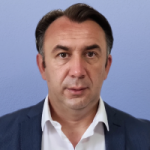
Milan Mishkovikj
Read his bio
Milan Mishkovikj, Msc. is the founder of Hepar Centar Bitola (Liver Center of Bitola), North Macedonia. He currently serves as the organization’s Vice president and CEO. Milan is a faithful member of the Advisory Board Project; HAREACT (The Joint Action on HIV and Co-infection Prevention and Harm Reduction (HA-REACT) addresses existing gaps in the prevention of HIV and other co-infections, especially tuberculosis (TB) and viral hepatitis, among people who inject drugs (PWID). The three-year project was launched in late 2015 with core funding by the Health Program 2014-2020 from European Union (EU). Milan is also the founder/Vice President of the Alliance of Patients Organizations in N. Macedonia. Milan graciously attains the position as Director of the European Liver Patient Association (ELPA)and works as an Official EU Health Lobbyist in EU parliament.
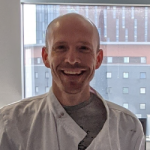
James Pritchett
Read his bio
Dr James Pritchett is a Senior Lecturer in Biomedical Science at Manchester Metropolitan University. He is interested in understanding the mechanisms involved in hepatic stellate cell (HSC) activation regulation. This is done using in vivo and in vitro models of fibrosis to highlight the roles of YAP1 and SRY Box 9 (SOX9) in HSC activation and fibrogenesis.
Currently, Dr Pritchett is working on a Guts UK funded project to further characterise the role and regulation of YAP1 in HSCs.

Anna Saborowski
Read her bio
Anna Saborowski is a physician scientist and part of the GI oncology team in the Department of Gastroenterology and Hepatology at Hannover Medical School, Germany. Since her early years in medical school, Anna has been interested in basic research, and she did her postdoc at Cold Spring Harbor Laboratories and Memorial Sloan Kettering Cancer Center, New York, in the laboratory of Scott W. Lowe. In line with her clinical interests, her research focuses on the molecular underpinnings of hepatobiliary malignancies, and she started her own lab in 2015. Anna is well acquainted with the challenges that come with pursuing both clinical work and basic research while having a family, and she is especially dedicated to encourage young scientists to embark on a career in hepatology with confidence. Anna has served as a principal investigator and gender representative in the collaborative research center “Liver Cancer” funded by the German Research Foundation, and she is part of the EASL YI task force since 2020.

Juan Turnes
Read his bio
Juan Turnes is a specialist in Gastroenterology with special dedication to Hepatology research, first in Hospital Clinic in Barcelona during 2002 – 2006 and later in Complexo Hospitalario Universitario de Pontevedra aka CHUP. Nowadays he is the leader of a consolidated team committed to Hepatology research in Instituto de Investigación Sanitaria Galicia Sur. Their main work areas are HCV, Cirrhosis Complications, hepatocarcinoma, and NAFLD. They have a large experience with Clinical Trials and multicentre studies in Hepatology and NAFLD.

Yu Jun Wong
Read his bio
Dr. Wong had completed his training in Gastroenterology Senior Residency, Singhealth, Singapore. He is currently a clinical assistant professor from the Duke-NUS Medical School, Singapore, and a consultant from Changi General Hospital, Singapore. His passion is in the field of liver cirrhosis, portal hypertension, and viral hepatitis. He has published over 40 peer-reviewed articles and served as the editorial member for the Journal of Clinical and Translational Hepatology.

